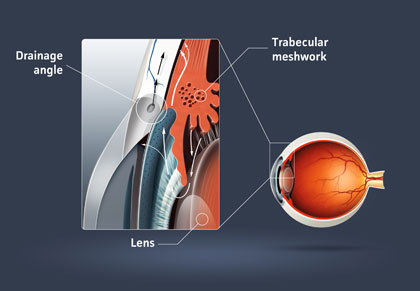Glaucoma Treatments Savanah, GA
Glaucoma is the second leading cause of blindness. It can damage your vision so gradually you don’t notice any loss of vision until the disease is at an advanced stage. This is an eye condition that develops when too much fluid pressure builds up inside of the eye. The increase in pressure, called intraocular pressure, can damage the optic nerve, which transmits images to the brain. If damage to the optic nerve from high eye pressure continues, glaucoma will cause loss of vision. Without treatment, it can cause total permanent blindness within a few years. Because most people with glaucoma have no early symptoms or pain from this increased pressure, it is important to have regular routine eye exams so that any issues can be diagnosed and treated before long-term visual loss occurs.






